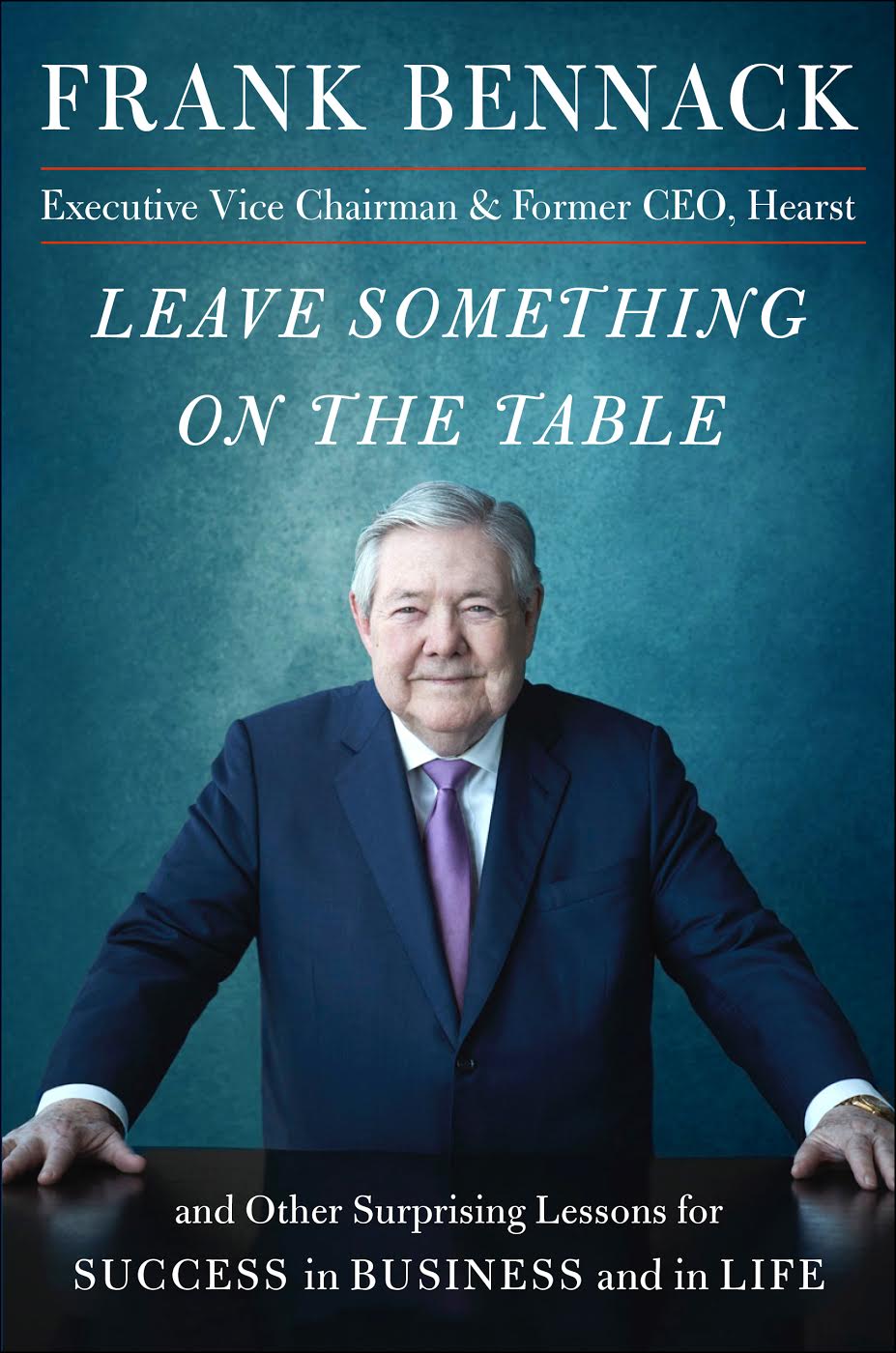When it came to learning about hands-on experience and grounding in life, Frank A. Bennack Sr. was for me in a class by himself. Later, there were other mentors. I’ve learned over my long life that among the most successful strategies for success is finding and following mentors who can not only teach you but help push you up the ladder.
The late William Randolph Hearst Jr., the second son and namesake of our company’s founder, always got a knowing smile when he said he got ahead in life because of “help from an older guy.” For Bill, that older guy was William Randolph Hearst. Bill’s humorous recognition of the role of mentors, superiors, and elders in one’s life certainly resonated with me, because I may have gotten a bigger boost from the older generation than almost anybody I know.
Some of my first mentors were the School Sisters of Notre Dame, who taught both the elementary and high schools at St. Gerard’s. Sister Mary Louise was about four-foot-ten. She dressed in the severe nun’s habit of the day, always resembling a penguin in full trot. She was convinced that I could bring our debating and oratorical team to victory in competitions despite our meager school population, and she spent many hours helping me hone my command of the necessary skills. I think those skills have been as much the key to my rising up the corporate ladder, maybe more, than any other ability I’ve developed. Learning early how to speak with conviction apparently led others to grasp what I was saying and to believe I was honest and trustworthy, which I always strived to be, and not motivated only by a calculated hope of personal gain. An invaluable lesson.
Thanks to Sister Mary Louise and our ROTC instructor, Captain Evans, I was appointed cadet colonel and commanding officer of our Junior ROTC unit despite finishing second in the schoolwide “Simon Says” military drilling competition. I began to think that second place wasn’t so bad; after all, there is third place and fourth place and even one-hundredth place in some endeavors.
Still, second place wasn’t what my mentors wanted for me, and more importantly, what they expected from me.
My luck turned when, after being judged second in a citywide oratorical contest sponsored, again amazingly by Hearst, the primary sponsor—Colonel B. J. Horner, publisher of Hearst’s San Antonio Light newspaper—decided the judges he had appointed were wrong. He privately declared me the winner, saying that anyone who “could talk like that” could certainly sell advertising. He then gave me the real prize: a job offer as a classified ad salesman for his newspaper. I had turned seventeen years old in February, and the job was to start as soon as I graduated from high school in May. I had earned a two-year scholarship to St. Mary’s University in one of the high school oratorical contests, but the discussion about what I should do lasted only a few minutes in the Bennack household. As soon as you’re old enough to work . . . get a job. Higher education could wait. I accepted Colonel Horner’s offer.
B. J. Horner had been a captain in World War I and rose to the rank of full colonel in the Second World War, serving with great distinction as G2, senior intelligence officer, on the staff of military icon George S. Patton. His career path at the newspaper had seen him rise to the position of advertising director before World War II, and, shortly after his return from the war, publisher, the newspaper’s top job. Like Patton, he was tough as nails. When a raccoon crawled through an open window in his living room, he pulled out his 12-gauge shotgun and blasted away, splattering the raccoon’s blood all over the walls, furniture, and carpets. You never know whether stories like this are at least in part apocryphal, but it was said that the blast was loud enough for a neighbor lady to call the police, believing the old colonel must have gone off his rocker.

Excerpt from LEAVE SOMETHING ON THE TABLE by Frank Bennack. Copyright © 2019 by Frank Bennack. Reprinted by permission of Simon & Schuster, Inc, NY.
Follow us here and subscribe here for all the latest news on how you can keep Thriving.
Stay up to date or catch-up on all our podcasts with Arianna Huffington here.


